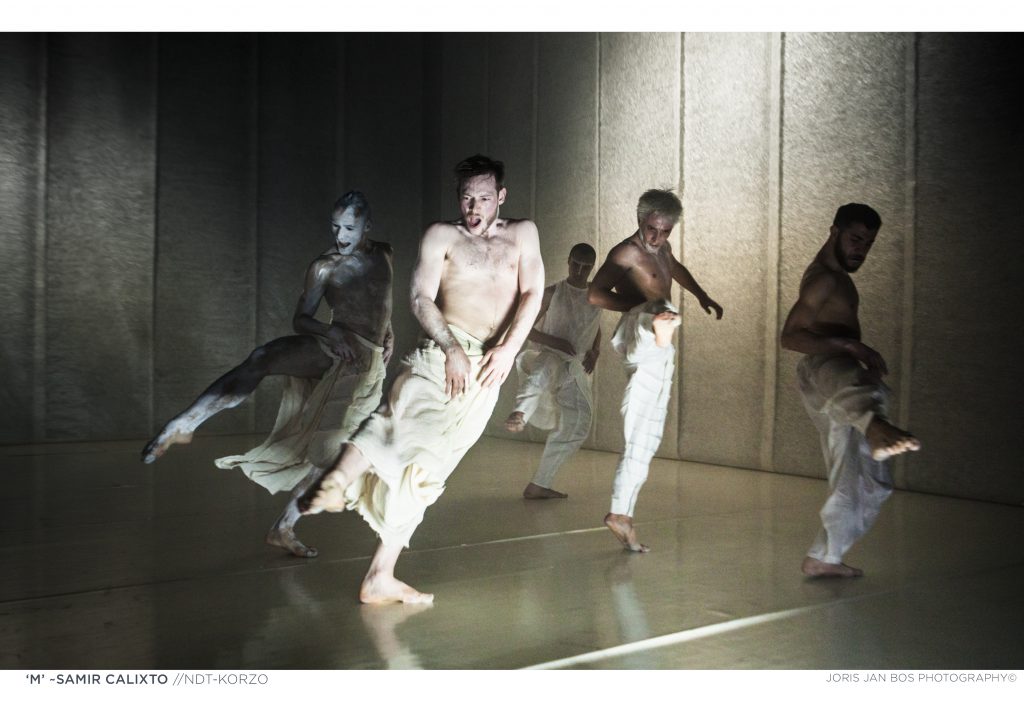‘Er is niet alleen werk verdwenen, maar ook kennis en ambacht – het hele perspectief verdwijnt. Terwijl Nederland als dansland vermaard was in de wereld, juist omdat het de luxe had om te onderzoeken, op te bouwen, te stimuleren.’ Ronald Wintjes, de kersverse directeur van De Nederlandse Dansdagen, maakt zich zorgen. Hoe zit het met de toekomst van de dans? Het rommelt immers in dansland: de productiehuizen Korzo en Dansmakers, festival Holland Dance en gezelschappen als Leine & Roebana en Aya kregen geen of nauwelijks structurele subsidie toebedeeld.
Komend weekend, van 7 tot 9 oktober, vinden in Maastricht de Nederlandse Dansdagen (NDD) plaats. [hints]Het festival ontstond in 1998 uit een kongsie van televisie (NPS), theater (a/h Vrijthof) en VSCD (de lobbyclub van schouwburg- en concertgebouwdirecties) en wil actuele ontwikkelingen in de Nederlandse dans ‘ontsluiten’ voor een breed publiek. Daarnaast zijn het ook de landdagen van de Nederlandse dans. Onder het publiek bevinden zich talloze ambtenaren en adviseurs, bestuurders, directeuren en producenten, pr- en persmensen, binnen- en buitenlandse programmeurs en tenslotte ook danskunstenaars – voor wie zich de overnachtingen in Maastricht kan veroorloven. NDD, nu voor het eerst onderdeel van de basis-infrastructuur (BIS), is zo ook een industry-bijeenkomst.[/hints] De nieuwe directeur Ronald Wintjens volgde in juni van dit jaar Peggy Olislaegers op. Het was kort dag voor Wintjens om al aan een eigen beleid toe te komen. Wel valt aan de 2016-editie op dat er relatief meer jeugddans geprogrammeerd staat. Dat is het terrein waarop Wintjens zich het afgelopen decennium als choreograaf heeft gemanifesteerd met zijn groep Project Sally.[hints]Ronald Wintjes is geboren in Sint Geertruid, ten zuidoosten van Maastricht. Hij werkte als danser met Itzik Galili en Connie Janssen en maakte in 1996 zijn eerste choreografie. In 2005 maakt hij TIJ, in opdracht van de Nederlandse Dansdagen. De cast van deze voorstelling was een mix van professionele – en amateurdansers, en vormde het begin van Project Sally, een ‘platform’ voor jeugddans dat Wintjens runt met collega Stefan Ernst. In 2013 vestigde Project Sally zich in Maastricht met ondersteuning van de gemeente en het Fonds Podiumkunsten.[/hints]
Polder
Vorig jaar schreef ik dat de polder-indeling van het festival een nogal versleten stramien volgde: gezelschappen waren niet vanwege het artistieke belang of de actualiteit maar vanwege hun plek op de subsidie-ladder in programma’s verzameld. Deze indeling naar ‘eerste, tweede en derde circuit‘ bleef ook dit jaar gehandhaafd. Maar voor het eerst zijn wel álle op dit moment nog in de BIS aanwezige en door het FPK structureel gesubsidieerde dansgezelschappen vertegenwoordigd. Tijdens het openingsprogramma zijn daarom alleen fragmenten van werk te zien, zoals normaliter gebeurt tijdens het BIS-gala op zaterdag. Zeven gezelschappen de revue laten passeren is anders niet mogelijk.
Ik sprak met Ronald Wintjens aan de vooravond van zijn eerste Dansdagen als directeur.
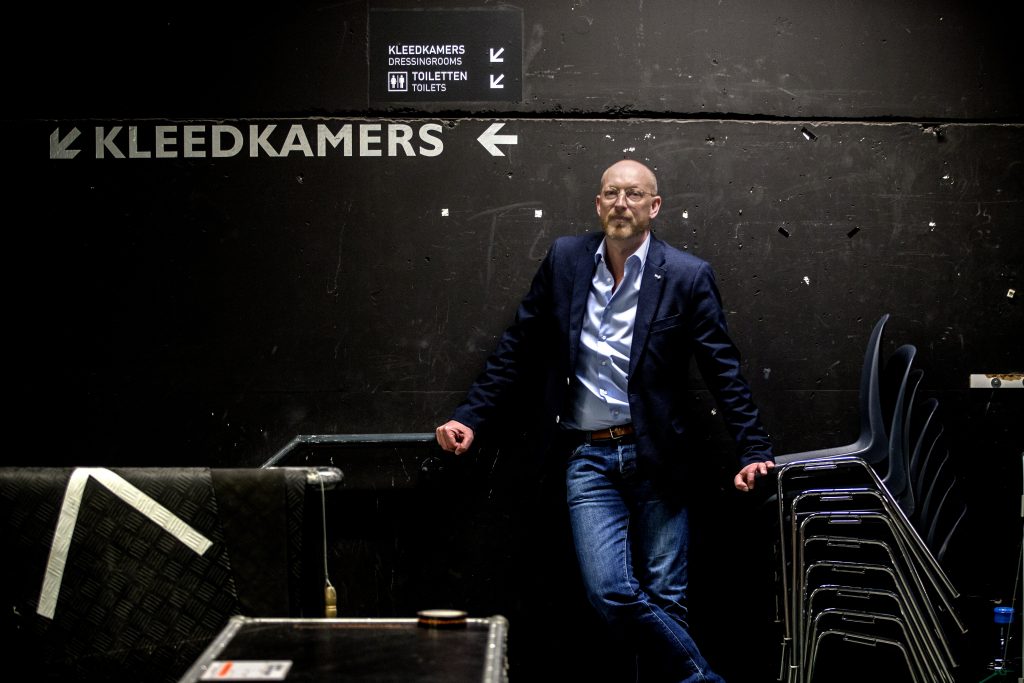
Hoe zie je de toekomst van de Nederlandse Dansdagen?
”De Dansdagen is een publieksfestival, maar het kan ook instrumenteel zijn voor de danssector. Ik kon dit jaar alleen maar wat nuances aanbrengen. De voorstellingen voor een jong publiek en familie op de zondag bijvoorbeeld. Ik vind echt dat jeugddans erbij hoort, en niet alleen omdat ik daar toevallig zelf erg in geloof. En het feit dat alle structureel gesubsidieerde gezelschappen te zien zijn? Dat ga ik niet elk jaar doen, maar eens in de vier jaar moet het, denk ik.
Constructieve dialoog
‘Als ik vooruit kijk, en dan ben ik misschien wat idealistisch, denk ik dat je tijdens de Dansdagen niet alleen de dialoog en de verbinding met het publiek kunt opzoeken, maar ook de branche bij elkaar kunt brengen. Ik voel een enorme urgentie om een bepaalde gezamenlijkheid in te brengen en een constructieve dialoog aan te gaan die de dans verder helpt.
‘Ik ga dat niet alleen doen door de jeugddans meer zichtbaarheid te geven, maar bijvoorbeeld ook door aandacht te besteden aan het historisch perspectief. We hebben een hele rijke traditie in dit land, maar die zit nu ergens weggestopt in een doos. Of kijk naar de conceptuele makers: uiteindelijk ontwikkelen zij de dingen die je naderhand terugziet in de mainstream. Dat werk moet getoond worden op de Dansdagen. Ik heb daarom een vacature uitgezet voor een redactielid performance art.
‘Ik ben ook niet vies van de meer commerciële makers, om die er meer bij te betrekken. Ook de hiphop is zich aan de mainstream aan het ontwurmen. Je ziet het aan de jongste generatie dansers. Die taal wordt over vijf of tien jaar gemeengoed. Dat moet getoond worden op de Dansdagen. Of dansmakers die helemaal niet meer op een podium willen staan, daar ben ik ook mee bezig. Je kunt al die praktijken die in de dans bestaan niet los van elkaar zien. Je moet het samenbrengen. Ik ga daarom zeker ook mijn best doen om de Dansdagen uit te breiden.”
Welke rol kan de Nederlandse Dansdagen spelen?
”Het gaat om zichtbaarheid, om discussie op te roepen en context te geven, maar ook om een constructieve benadering van de sector als geheel, want er zijn echt problemen. Dans is heel populair op televisie, maar in de theaters loopt de programmering terug, omdat het publiek de dans in het theater niet altijd meer weet te vinden. Er is sprake van vergrijzing.’
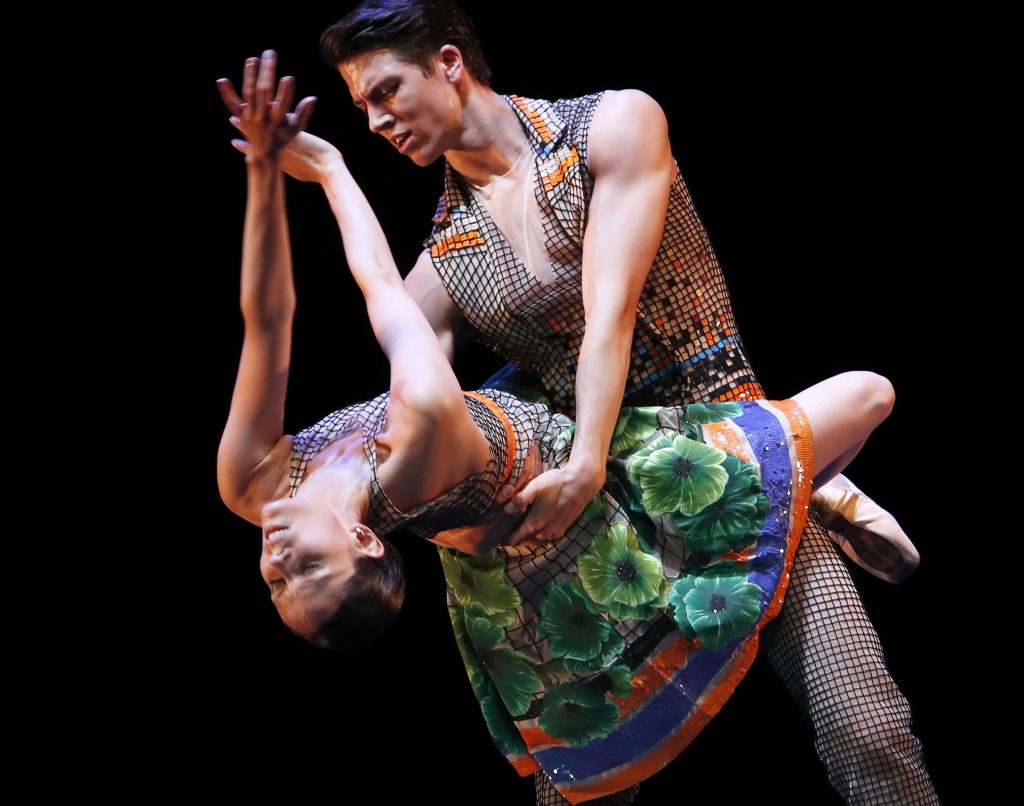
Beeldvorming
‘En dan zijn daar die enorme bezuinigingen nog eens overheen gekomen. De kunstsector als geheel heeft daar natuurlijk enorm van te lijden gehad, ook van de imago-schade die de bezuinigingen veroorzaakten. Daar klimmen we nu heel langzaam uit. Ik geloof niet dat de terugloop in programmering per definitie te maken heeft met de kwaliteit van de Nederlandse dans. Maar er is wel iets met de bemiddeling van dans, zowel naar het publiek toe, als in het beleid en in de sector onder collega’s. Het gaat om beeldvorming, die moet beter en soms ook gewoon wat populairder.’
Is beeldvorming het enige probleem en meer zichtbaarheid de oplossing?
‘Als we ons als sector niet gezamenlijk richten op de volgende beleidsperiode, vanaf 2020, dan loopt de dans het gevaar dat er nog meer instellingen en gezelschappen wegvallen. We moeten ons echt gezamenlijk afvragen hoe we onderdeel kunnen blijven van het te voeren beleid. Anders ontstaat er wispelturig beleid, waardoor je geen lange lijnen meer kunt uitzetten. Dan is er bijgevolg geen geld meer om het ambacht in de dans te ontwikkelen, om het onderzoek te doen dat je nodig hebt als kunstenaar, om ruimte te krijgen om te falen en zo’n slechte voorstelling maken dat het bijdraagt aan je ontwikkeling. Dat kan eigenlijk allemaal nauwelijks meer, de marge daarvoor wordt steeds kleiner.
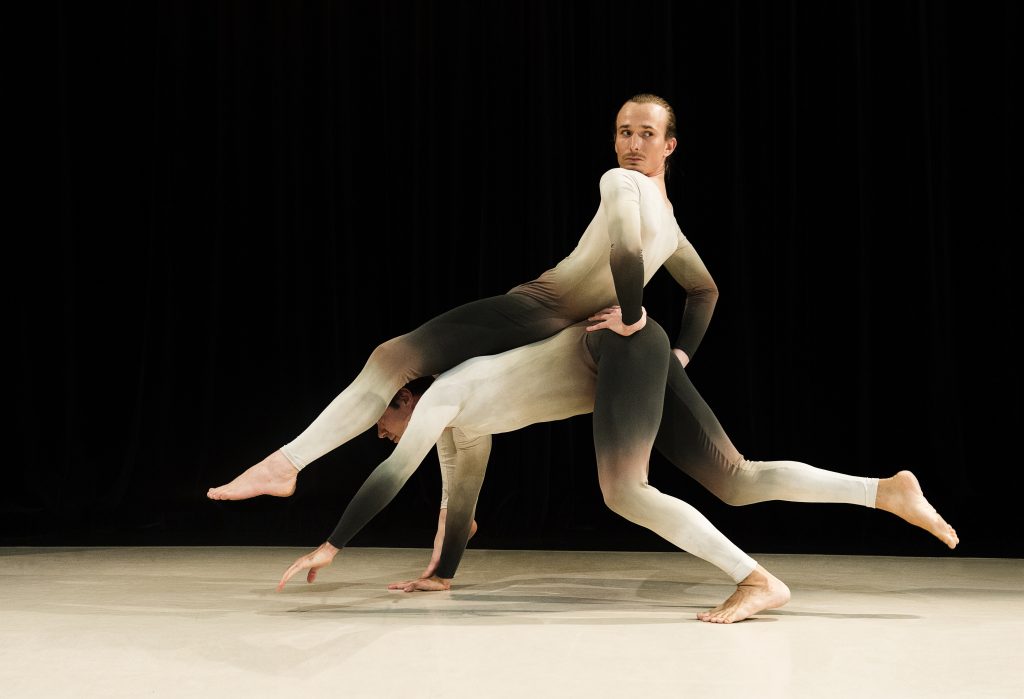
Ambacht
‘Er is in Nederland zo weinig productie over, dat er nauwelijks nog freelance-dansers te vinden zijn. Tegelijkertijd, wanneer je een auditie houdt, staan er 500 mensen op de stoep, uit de hele wereld, want ze wonen niet meer in Nederland. Er is zo niet alleen werk verdwenen, maar ook kennis en ambacht – het hele perspectief verdwijnt. Terwijl Nederland als dansland vermaard was in de wereld, juist omdat het de luxe had om te onderzoeken, op te bouwen, te stimuleren.’
‘Neem nu bijvoorbeeld één van de genomineerden voor de Dansdagenprijs, Marina Mascarell, die bij NDT danste en bij Korzo in 2011 haar eerste voorstelling maakte. In het buitenland werkt zij op grote podia, maar in Nederland heeft zij als beginnend maker die mogelijkheid niet meer. Jonge makers groeien op in wat er over is van de productiehuis-functie en dat is qua budget helemaal niet gericht op het grote podium. De gezelschappen die daar wel functioneren, kunnen onmogelijk al die jonge of nieuwe makers aan. Die gezelschappen komen zelf om in de verplichtingen. Kortom, net als in andere sectoren, zeg maar de bedrijven of de zorg, is er in de dans ook iets wezenlijks gebeurd. De vraag is nu: hoe kunnen we er voor zorgen dat de vitaliteit weer terugkomt in het dansveld?’
Heb je daar suggesties voor?
‘Op vrijdagmiddag, voorafgaand aan de opening, vindt tijdens Dutch Dance Dialogues een debat plaats met de sector. Ik wil dat gesprek faciliteren, maar ik ga als directeur van de Dansdagen niet de inhoud van dat gesprek bepalen. Ik denk wel dat we als sector gezamenlijk waarden kunnen bepalen, onafhankelijk van of je nu een klassieke maker bent of een conceptuele, of je commerciëel werkt of voor de jeugd of wat ook meer. Ik wil dat die stem van de dans versterkt wordt, zodat we in een bepaalde gezamenlijkheid actie kunnen ondernemen. Als we dat niet doen, dan verdwijnt er dadelijk in 2020 nog veel meer.’
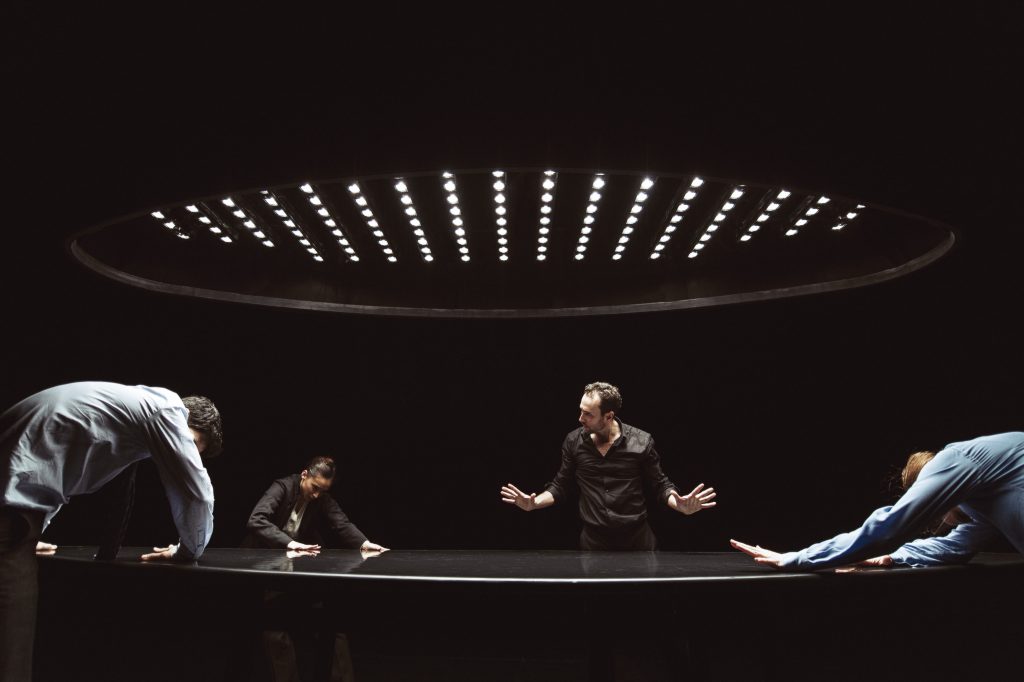
Nodig
‘Waar ik bang voor ben is dat we als sector dat belang niet luid genoeg uitspreken, het niet op tafel leggen en dat het dan ook niet in het beleid terug te vinden zal zijn. Ik hoop dat mensen in de danswereld zich gaan realiseren dat ze niet alleen heel erg van elkaar verschillen, maar dat ze elkaar ook nodig hebben.’
‘Het gaat natuurlijk ook om de ontwikkeling van het publiek. Je kunt mensen die van klassiek houden of van esthetische dans niet klakkeloos in een andere ervaring neerzetten. Bedenk ook, je hebt de grote gezelschappen, met hun meer conventionele aanpak nodig. Zij hebben enorm veel verplichtingen, waardoor ze minder risico nemen. Ze zijn ook enorm gewild bij het publiek, en dat is broodnodig.’
‘Ik denk dat als de programmering van de dansdagen scherper wordt, je mensen wel kunt overhalen om andere dingen te doen. Dat je in die bubble van een paar dagen mensen, publiek en collega’s, kunt verleiden om meer avontuurlijke keuzes te maken. Daar hoort van mijn kant een zekere naïviteit bij, een portie idealisme, want anders kun je dit gewoon niet doen.”
Moet je als kunstenaar entrepreneur worden, zoals jij jezelf noemt?
”Misschien ben ik dat nu niet meer, maar dat is wel hoe ik mij de afgelopen twintig jaar ontwikkeld heb. Ik ben nooit alleen maar danser of dansmaker geweest. Ik heb heel veel lesgegeven en educatie gedaan. Ik werkte in opdracht. Mensen konden mij bellen voor coaching van jonge dansers of makers tot educatie-projecten in het onderwijs.’
Uitkering
‘Ik was ervan overtuigd dat niemand mij hoefde te helpen en dat ik zelf de boer op moest gaan om mijn eigen praktijk vorm te geven. Ik vulde mijn gaten ook niet op met een ww-uitkering, maar bedacht projecten en ging langs de deuren leuren. Tijdens de opbouw van Project Sally heb ik mij ook bewust gericht op de regio, ben ik buiten de Randstad gebleven. Ik zag dat er daar een gat in de markt was.”
Deed je dat omdat er brood op de plank moest?
”Nee, het is iets dat bij mij hoorde. Niet iedereen moet dat doen. Je moet educatie willen en kunnen, want anders is het snel te veel. Het hangt voor mij samen met de kracht van de dans, dat het voorbij gaat aan de rede. Ik zie wat het doet met mensen, met kinderen, en daar geloof ik enorm in. Het heeft mij enorm gevoed: om mensen te begrijpen, hoe ik mijn boodschap kan overbrengen. De diversiteit van die activiteiten brengt je heel ergens anders dan wanneer je focust op één punt.’
‘Het is voor mij nog steeds belangrijk voor mij is dat ik ooit voor het 30-jarig jubileum van Krisztina de Châtel een reizende expositie mocht maken. Ik mocht in haar archief alle foto’s en alle video’s bekijken. Ik kon repetities bijwonen en proberen te ontdekken wie zij als vrouw en als maker was. Dat onderzoek voedde mij enorm. Bij Noord Nederlands Dans, met Itzik Galili en later onder Shropshire, had ik wekelijkse coachingsgeprekken met jonge dansers. Het hielp mij ook enorm in mijn eigen werk.’
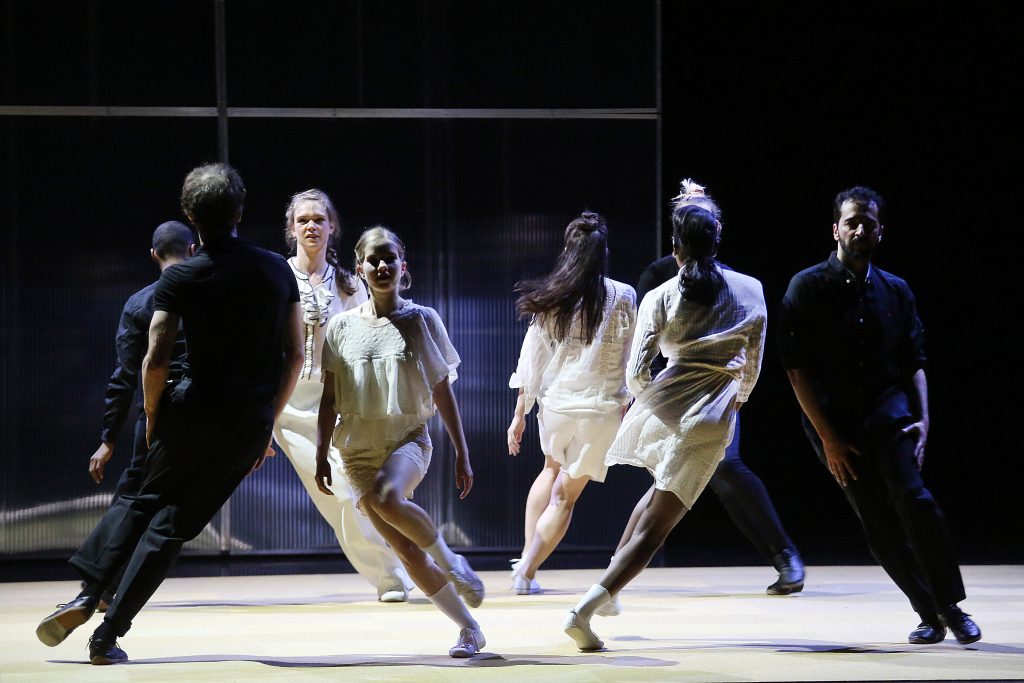
Virtueel
‘Maar, en dat is misschien wat jij bedoelt, op een gegeven moment moet je ergens expertise gaan aanleggen. Je kunt niet breed blijven, je moet een verdiepingsslag maken. En daar sta ik nu. Als ik iets wil bewerkstelligen dan is het die grotere zichtbaarheid bij het publiek. Volgend jaar duren de Dansdagen daarom niet drie, maar vier dagen. En ik ga ook op zoek naar andere locaties. Het podium hoeft niet binnen het theater te zijn. Het kan op locatie, het kan virtueel zijn, of via lezingen kan het podium in je hoofd.”
Maar dan heb je het over lokaal publiek, terwijl het om Nederlandse dansdagen gaat.
”60% is Limburgs publiek, 40% komt uit de rest van het land.”
En dat zijn allemaal professionals?
”Nee, daarvan is maar zo’n 10% incrowd. Het publiek is in de jaren onder Peggy echt enorm gegroeid.”
Maakt het uit voor het festival dat nu een Limburger directeur is? Ga je het kantoor in Amsterdam opzeggen?
”Ik denk wel dat er een kleine verschuiving zal optreden, wat betreft de worteling in de regio. Ik denk dat ik meer connecties kan maken, omdat ik ze dagelijks zie. Maar ik blijf in Amsterdam kantoor houden. Het is een landelijk festival, dus ik ga die band niet doorknippen.’
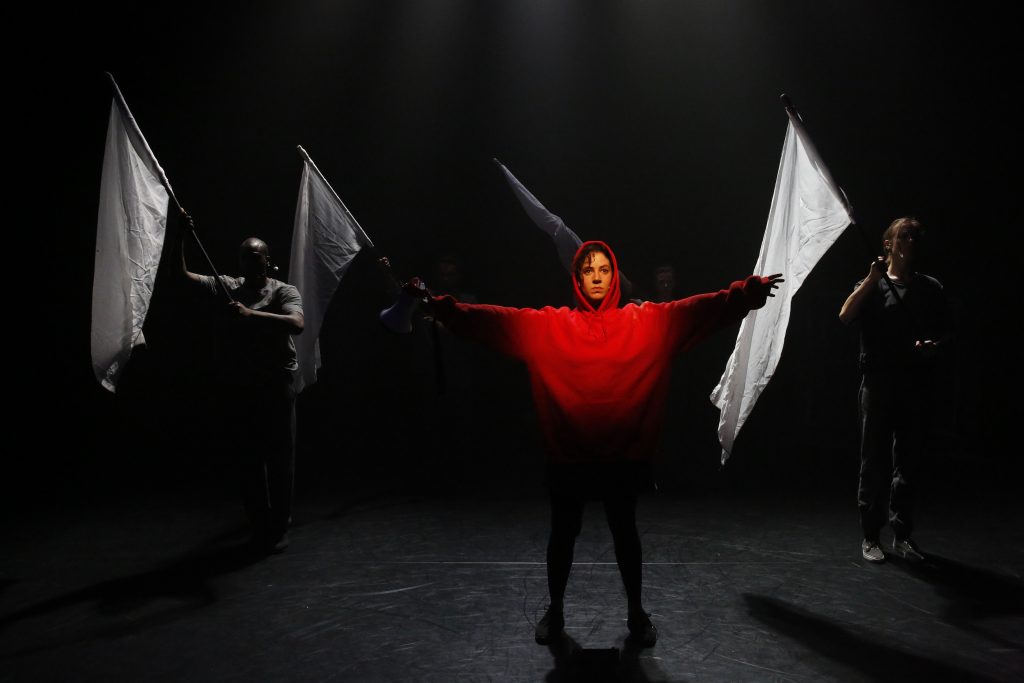
Maastricht
‘Aan de andere kant: Nederland is een heel klein land. Het is natuurlijk heel bijzonder dat de hele sector afreist naar die regio. Dat is belangrijk. Ik denk ook dat het merk Dansdagen, als je het zo mag noemen, verbonden is met Maastricht. En kunnen ook dingen in Maastricht, die je in de Randstad niet zo gauw voor elkaar krijgt. Mensen zijn in de regio toch doordrongen van de urgentie om het samen te doen om het te laten floreren. Je ziet dat mensen samen voor het zelfde doel gaan in plaats van elkaar te tent uit te vechten. Daarom is het voor mij ook belangrijk om alle gezelschapen en alle onafhankelijke makers samen te brengen op de Dansdagen.’ ‘
En ga je dan ook iets doen aan de nazit, met de disco in de betonnen bak van het Vrijthof? Sinds er op het bordes voor de deur van het theater niet meer gedronken mag worden, moet de informele uitwisseling in een onmogelijke kakofonie plaatsvinden …
”Mmm, dat is inderdaad een probleem, waar ik niet 1,2,3 iets aan kan doen.’ ‘
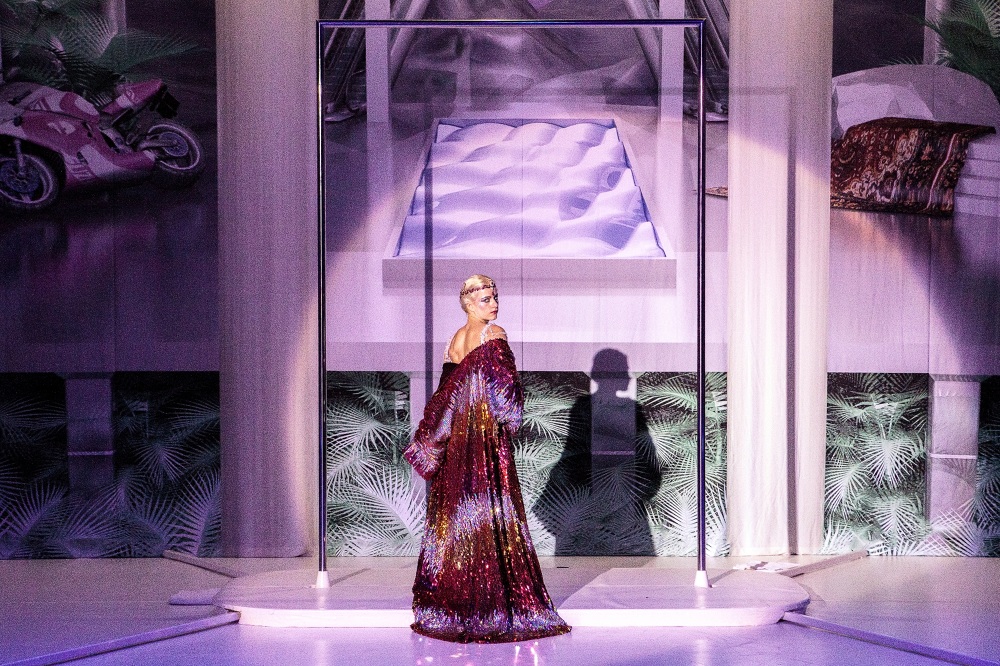
En de gala-avond, waar zoveel professionals langzamerhand genoeg van hebben, omdat er niets nieuws onder de zon is? En tegelijkertijd is het het ‘pièce de milieu‘ van het festival …
”Kijk, het Feest van de Nederlandse Dans – zoals het gala ondertussen heet – dat moet. Er zitten dan 900 mensen in de zaal die die prachtige voorstellingen van de grote gezelschappen willen zien. Die vier op één podium, dat is echt uniek. Maar ik was dit jaar al van plan een alternatief programma te maken voor de zaterdag-avond, door Florentina Holzinger met haar laatste voorstelling parallel te programmeren. Het was te kort dag, het lukte gewoon qua agenda’s en locatie niet. Maar volgend jaar ga ik echt proberen verschillende publieksstromen te organiseren op die avond. Dan zal ik tegenover de gevestigde gezelschappen een alternatief programma zetten. Ik wil echt de scherpte opzoeken in het programma, zodat verschillende publieksgroepen tegelijkertijd bediend kunnen worden. Maar dit soort processen kun je niet forceren, dat moet je opbouwen. Maar het is wel waar ik voor sta.’
De Nederlandse Dansdagen vinden plaats van vrijdag 7 tot en met zondag 9 oktober in Maastricht in Theater a/h Vrijthof en op diverse andere locaties in de stad. Voor meer informatie zie de NDD-website. Het gesprek met de sector in het kader van Dutch Dance Dialogues vindt plaats op vrijdag 7 oktober tussen 14:00 en 16:00 in De Brandweer – Capucijnenstraat 21, Maastricht. RSVP via info@nederlandsedansdagen.nl.
